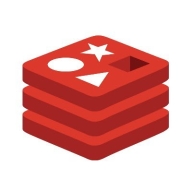

Oracle Coherence and Redis are products competing in the in-memory data grid category. Redis appears to have an edge due to its performance and flexibility, while Oracle Coherence offers valuable enterprise features.
Features: Oracle Coherence provides advanced data management capabilities, data replication, and grid computing features, fitting for large enterprises. Redis supports high-performance data handling, complex data structures, and Lua scripting, making it versatile.
Room for Improvement: Oracle Coherence could improve its deployment simplicity, the learning curve for new users, and more lightweight integration with non-Oracle environments. Redis might enhance its handling of large clusters, more robust backup solutions, and improved multi-thread handling for specific scenarios.
Ease of Deployment and Customer Service: Redis is known for its easy deployment and active community support. It offers flexible cloud hosting options. Oracle Coherence integrates well with Oracle Cloud and offers a suite of management tools. Its deployment can be more complex but provides a structured enterprise environment and comprehensive customer service.
Pricing and ROI: Oracle Coherence has a higher setup cost with enterprise-level ROI through its advanced features. Redis's open-source model offers a lower entry barrier with attractive ROI, focusing on scalability and performance.
| Product | Market Share (%) |
|---|---|
| Redis | 21.8% |
| Oracle Coherence | 13.2% |
| Other | 65.0% |


| Company Size | Count |
|---|---|
| Small Business | 5 |
| Midsize Enterprise | 3 |
| Large Enterprise | 23 |
| Company Size | Count |
|---|---|
| Small Business | 11 |
| Midsize Enterprise | 3 |
| Large Enterprise | 8 |
Oracle Coherence is an in-memory data grid solution that enables organizations to predictably scale mission-critical applications by providing fast access to frequently used data. As data volumes and customer expectations increase, driven by the “internet of things”, social, mobile, cloud and always-connected devices, so does the need to handle more data in real-time, offload over-burdened shared data services and provide availability guarantees.
Oracle Coherence comes with a rich set of processing and event capabilities so applications can scale processing with increased data volumes. By automatically and dynamically partitioning data, Oracle Coherence ensures continuous data availability and transactional integrity, even in the event of a server or site failure.
Oracle Coherence provides organizations with a robust scale-out data abstraction layer that brokers the supply and demand of data between applications and data sources. This cost-effectively offloads shared data services such as databases, mainframes, and partner services.
For more information on Oracle Coherence, visit Oracle.com
Redis offers high-speed, in-memory storage, renowned for real-time performance. It supports quick data retrieval and is used commonly in applications like analytics and gaming.
Renowned for real-time performance, Redis delivers high-speed in-memory storage, making it a favorite for applications needing quick data retrieval. Its diverse data structures and caching capabilities support a broad array of use cases, including analytics and gaming. Redis ensures robust scalability with master-slave replication and clustering, while its publish/subscribe pattern renders it reliable for event-driven applications. The solution integrates smoothly with existing systems, minimizing performance tuning needs. Although documentation on scalability and security could be improved, Redis remains cost-effective and stable, commonly utilized in cloud environments. Enhancing integration with cloud services like AWS and Google Cloud and refining GUI may improve usability.
What are the key features of Redis?Redis finds application across industries for tasks like caching to improve application performance and speed, minimizing database load. It enables real-time processing for session storage, push notifications, and analytics. As a messaging platform, Redis handles high traffic and supports replication and clustering for cross-platform scalability.
We monitor all In-Memory Data Store Services reviews to prevent fraudulent reviews and keep review quality high. We do not post reviews by company employees or direct competitors. We validate each review for authenticity via cross-reference with LinkedIn, and personal follow-up with the reviewer when necessary.